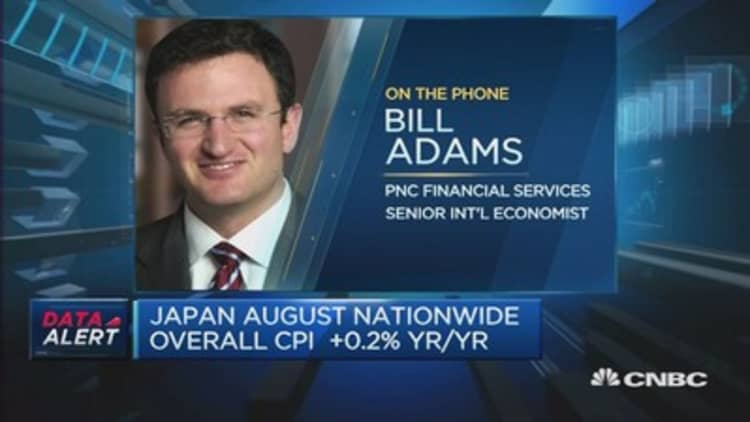The dollar rose on Wednesday along with global stock markets, also getting lift from strong private-sector U.S. jobs data, while the euro fell back on a report euro zone inflation had turned negative.
The gains kept the dollar on track for a net rise for July, August and September of 0.75 percent, making 2015's third quarter the fourth out of the past five during which the rallying greenback has gone up against other major currencies.
U.S. private employers added 200,000 jobs in September, beating forecasts and hinting jobs growth may be sufficient for the Federal Reserve to raise interest rates later this year, according to the ADP National Employment Report.
The news lifted the , which measures the U.S. unit's strength against other major currencies. The index was last up 0.5 percent for the day and has been rising since mid 2014 on America's relatively strong economy and high interest rates.

As Wall Street posted gains of about 1 percent and U.S. Treasury yields rose, the dollar was up 0.10 percent against the yen to just under 120 yen, firmer against the Swiss franc , and down slightly against British sterling.
The euro fell against the dollar by 0.74 percent to $1.1169, and was down 0.51 percent against the British pound after a euro zone inflation report.
Euro zone prices fell by 0.1 percent on an annual basis in September after rising 0.1 percent last month. The decline missed expectations and remained well below the European Central Bank's target of just under 2 percent.
The report fed speculation the ECB will expand or extend its cheap-money asset purchases as America readies to raise interest rates.
Read MoreHow the yen dethroned the dollar in a single day
While the ECB is focused on inflation expectations and inclined to look through falls in the headline rate, traders say a sustained drop below zero could reinforce policymakers' fears about the firmer euro's impact on financial conditions.
"A weak number was expected and bolsters expectations that the ECB may have to expand its asset purchase program from the 60-billion-euros-a-month to something larger, perhaps by year-end," said Richard Falkenhall, currency strategist at SEB.
Traders said U.S. nonfarm payroll numbers due on Friday could strengthen or weaken the case for a 2015 lift-off in U.S. interest rates and set the tone for the dollar.
Federal Reserve Chair Janet Yellen did not comment on the U.S. economy or monetary policy in brief welcoming remarks to a community banking symposium on Wednesday.

